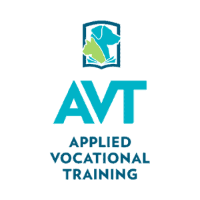
How do I become a wool worker?
Certificate III in Advanced Wool Handling
- There are no mandated entry requirements.
 South Regional TAFE
South Regional TAFE
Certificate III in Wool Clip Preparation
- There are no mandated entry requirements.
 South Regional TAFE
South Regional TAFE
Certificate III in Animal Care Services
- There are no mandated entry requirements.








Certificate II in Animal Care
- There are no mandated entry requirements.








Certificate II in Wool Handling
- There are no mandated entry requirements.


Bachelor of Science (Animal Science)
- There are no mandated entry requirements.



Bachelor of Agriculture
- There are no mandated entry requirements.





Related occupations
Farmhand
A Farmhand performs varied tasks like feeding livestock, operating machinery, maintaining equipment, and assisting with crop care in all weather.
Station Hand
A Station Hand performs daily tasks on agricultural properties, which may include mustering livestock, fixing fences, and operating machinery.
Piggery Attendant
A Piggery Attendant manages daily operations by caring for pigs, maintaining their environment, and assisting with breeding and transport.
Bore Runner
A Bore Runner ensures water points on cattle stations function properly, performing maintenance and monitoring water supply for livestock.
Organic Farmer
Organic Farmers grow crops and raise livestock without chemicals, managing daily tasks like planting, harvesting, and equipment maintenance.
Farm Manager
A Farm Manager oversees farm operations, making strategic decisions, managing staff, ensuring compliance, and handling administration tasks.
Station Manager
Station Managers oversee cattle stations, ensuring productivity, profitability, and compliance with regulations while managing a team and performing various tasks.
Dairy Farm Manager
A Dairy Farm Manager oversees cattle health, pasture preparation, milking, equipment maintenance, and milk sales, requiring animal handling and management skills.
Agribusiness Manager
An Agribusiness Manager oversees operations of a farm or agricultural business, focusing on marketing, accounting, and profitability strategies.
Poultry Farm Worker
A Poultry Farm Worker performs daily tasks on a poultry farm, including feeding, monitoring health, collecting eggs, and maintaining cleanliness.
Livestock Transporter
A Livestock Transporter moves animals between locations, ensures animal welfare, drives heavy vehicles, and handles loading and unloading tasks.
Sheep Shearer
A Sheep Shearer removes wool using shearing equipment, handling animals while ensuring their health and working long hours in a physically demanding role.
Sheep Shearing Trainer
A Sheep Shearing Trainer supervises shearers, training them in skills, animal handling, and equipment use while ensuring industry standards are met.
Wool Classer
A Wool Classer appraises and sorts wool based on quality for market sale, requiring attention to detail, physical fitness, and teamwork.
Stock and Station Agent
A Stock and Station Agent sells agricultural products and properties, appraising items, sourcing buyers, and facilitating sales processes.
Pen Rider
A Pen Rider moves cattle, monitors health, assists with transport, and maintains safety, using strong animal handling and teamwork skills.
Common questions
How much does a Wool Worker earn?
In Australia, a full time Wool Worker generally earns $1,300 per week ($67,600 annual salary) before tax. This is a median figure for full-time employees and should be considered a guide only. As you gain more experience you can expect a potentially higher salary than people who are new to the industry.
What are the job opportunities for a Wool Worker?
The number of people employed as a Wool Worker has remained steady in recent years and there are currently 1,100 people working in this role in Australia. Wool Workers will usually find opportunities in rural and regional areas of Australia.
Source: The Labour Market Information Portal – 2019 Occupation Projections
How do I become a Wool Worker?
If you’re thinking about starting a career as a Wool Worker, consider enrolling in a Certificate III in Advanced Wool Handling. This course covers topics including preparing wool for classing, wool pressing and carrying out shearing shed duties. A Certificate III in Wool Clip Preparation is also a suitable qualification and will prepare you to appraise and class fleece wool and prepare wool for the clip.
Further reading


How to start a career in Warehousing
3rd November 2021)

